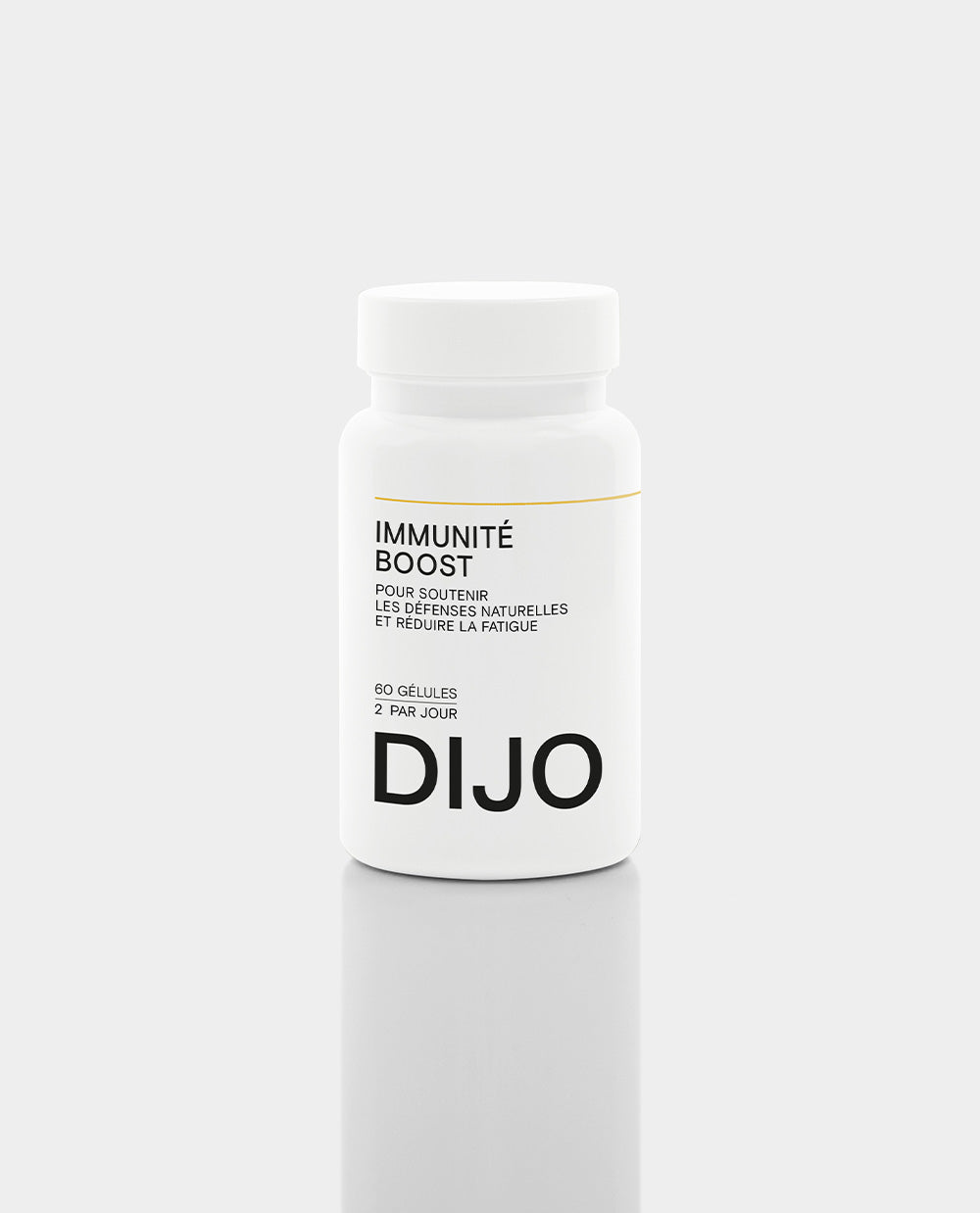Food, and especially nutrients, are essential for the body to function properly. They provide fuel for our cells and, therefore, our organs.
Throughout the digestive system, nutrients from food and water will provide the organs with all the elements necessary to function. At the intestinal level, the flora, also called intestinal microbiota , will recover some nutrients in order to feed the microorganisms present and support digestive and immune functions. This is why following these nutritional tips to take care of your stomach is essential.
What to remember :
- Staying well hydrated is essential for a healthy body and stomach: 1.5L of water per day
- Promote a balanced and diversified diet with varied foods, adapted to the seasons and sourced from French agriculture
- Add spices to dishes to aid digestion
- Consume enough fiber by providing fruits, vegetables, legumes and (whole) grains
- Limit the consumption of ultra-processed industrial products with a high concentration of additives to avoid an imbalance of the intestinal flora
Tip #1 - Adopt good hydration for active transit
Hydration is the first key to a healthy bowel movement. Indeed, by providing enough water to the body, we allow it to function properly and this helps hydrate the food bolus and form stools correctly. Water is mainly absorbed in the small intestine, as are all nutrients. Excess water found in the colon is absorbed there to support the basic functions of the body but also dehydrate and form stools.
Our nutritional advice: Drink 1.5 to 2 liters of water daily . To make water consumption easier, you can infuse it with fruit, plants, tea, or coffee.
Tip #2 - Diversify and balance your diet
The foundation of nutrition is, above all, diet. Adopting a balanced and varied diet is the first line of defense against the onset of metabolic, digestive, and hormonal disorders.
Dietary balance
Balance is defined by a ratio between foods that are beneficial to the body and meet its needs and foods that are less beneficial, associated with a more hedonic aspect (food pleasure). This is why it is important to provide your body with different sources of nutrients: proteins, lipids, carbohydrates, fiber, vitamins and minerals.
Our nutritional advice : divide your meal plates into 3 parts, half representing vegetables, a third composed of proteins (animal or vegetable) and the second third composed of starchy foods (rice, pasta, quinoa, bread).
Food diversification
In order to diversify your diet, it is important to provide different sources of nutrients to allow the microbiota to function optimally.
To do this, vary the sources of protein consumed: animal (meat, fish, egg, cheese) and vegetable (legumes (lentils, beans, soy, broad beans, etc.) combined with cereals (rice, quinoa, wheat, spelt, etc.)). You can also vary the sources of carbohydrates : starchy foods (bread, pasta, rice, quinoa, bulgur, corn, etc.), sugars of all kinds while taking care not to abuse their consumption. Similarly, depending on the uses, it is very interesting to vary the sources of added lipids : oils and butter.
Fats for cooking
- Butter
- Sunflower oil
- Olive oil
- Coconut oil
Fat for seasoning
- Olive oil
- Rapeseed oil
- Walnut oil
- Linseed oil
However, care should be taken not to consume foods too rich in saturated fats, which are difficult to digest. They can have an impact on the microbiota and potentially lead to an increase in intestinal permeability or porosity .
Finally, choosing seasonal and local fruits and vegetables will also be essential to ensure they are rich in nutrients. Indeed, nature is well made and produces fruits and vegetables rich in nutrients adapted to our needs according to the seasons.
Tip #3 - Enrich your diet with fiber
Fiber is a nutrient that does not provide energy to the body, is not digested, but is used by the microorganisms in our intestinal microbiota. The recommended intake is 30g per day.
Effects of fiber on the body
Fiber has many beneficial effects on the body.
The fibers, some of which have a prebiotic effect , nourish the microbiota, which supports its development and functioning.
Due to its microbiota-balancing action, fiber plays a significant role in regulating digestive transit . Soluble fiber, capable of absorbing nearly 3 times its weight in water in the intestine, forms a gel that slows down intestinal transit. It is therefore recommended in cases of diarrhea.
Insoluble fibers can absorb nearly 25 times their weight in water, which speeds up transit. They are therefore recommended in cases of constipation.
Bioavailability is defined by the speed and quantity at which nutrients are absorbed. By forming a gel in the intestine, fiber will slow down the absorption of nutrients in order to limit the occurrence of postprandial hyperglycemia.
By limiting macronutrient absorption, fiber helps reduce calorie intake and the glycemic index, resulting in less storage. Fiber is also satiating.
List of foods rich in fiber
For a healthy stomach, prioritize regular consumption of foods rich in fiber:
- Fruits and vegetables of all kinds, the richest of which are apples, red fruits, peas, cabbages, parsnips, etc.
- Legumes : lentils, soybeans, beans, peas
- Grains (preferably whole): rice, wheat, rye, bulgur, quinoa, oats, barley
- Seaweed
- Oilseeds : almonds with skin, walnuts, hazelnuts, Brazil nuts, cashew nuts, etc.
Our nutritional advice: Eat at least two different vegetables a day, raw or cooked/minimally processed, and include legumes in your meals. Also, include vegetarian meals based on legumes and grains to vary your enjoyment and provide the necessary dose of fiber per day.
Tip #4 - Focus on spices
To enhance your dishes and give a boost to digestion, it is interesting to add spices . Some can be aggressive for the body (chili) while others have real virtues for the digestive system:
- Turmeric : modulation of the level of toxins and intestinal inflammation
- Cumin : reduces flatulence and stomach pain
- Fennel : promotes detoxification of the body
- Cinnamon : protection of gastric and intestinal functions
- Clove : fights bloating and stomach aches
- Pepper : stimulates the secretion of gastric juices
Tip #5 - Limit your consumption of ultra-processed products
Ultra-processed products refer to all industrial products that have undergone several transformations, whether chemical or physical. These products are strongly criticized because they often have a fairly long list of ingredients with a significant addition of additives. Consumed in high doses, these products can alter the microbiota by causing inflammation of the intestine and colon that can spread throughout the body. Indeed, the entry of toxic compounds into the body will alter the intestinal barrier composed of microorganisms, guardians of our health. This can, over time, cause intestinal hyperpermeability , which leads to various digestive, immune, and metabolic disorders.
Our nutritional advice : Avoid consuming these types of products too regularly to avoid overloading your body. Looking at ingredient lists can be an indicator of whether the product is being processed in a way that is more or less harmful to your body. Simply look at the product packaging and determine if the ingredient list is too long (more than 10 ingredients) and if it contains too many unfamiliar names with the presence of codes like EXXX, relating to additives.
Sources :
[1] Barber, TM, Kabisch, S., Pfeiffer, AFH, & Weickert, MO (2020). The Health Benefits of Dietary Fiber. Nutrients, 12(10), 3209. https://doi.org/10.3390/nu12103209
[2] Laudisi, S.a. (2019). Impact of Food Additives on Gut Homeostasis. doi: https://doi.org/10.3390/nu11102334
[3] Lindseth, M.K. (2018). The Western Diet–Microbiome-Host Interaction and Its Role in Metabolic Disease. doi:10.3390/nu10030365
[4] Arshad, H., Head, J., Jacka, F.N., Lane, M.M., Kivimaki, M., & Akbaraly, T. (2023). Association between ultra-processed foods and recurrence of depressive symptoms: the Whitehall II cohort study. Nutritional neuroscience, 1–13. Advance online publication. https://doi.org/10.1080/1028415X.2022.2157927






















